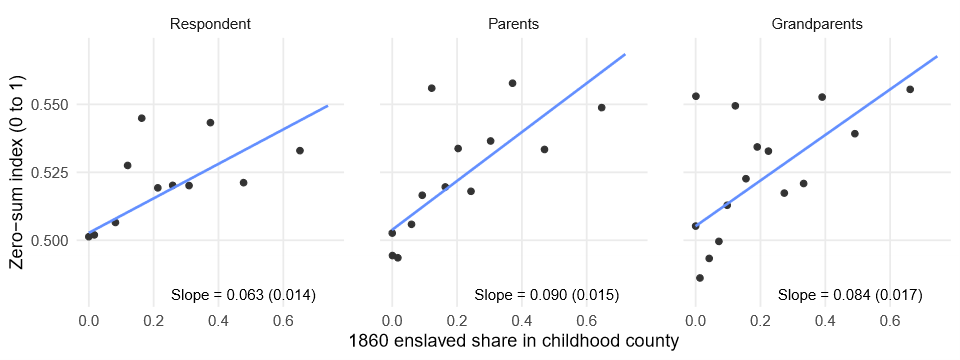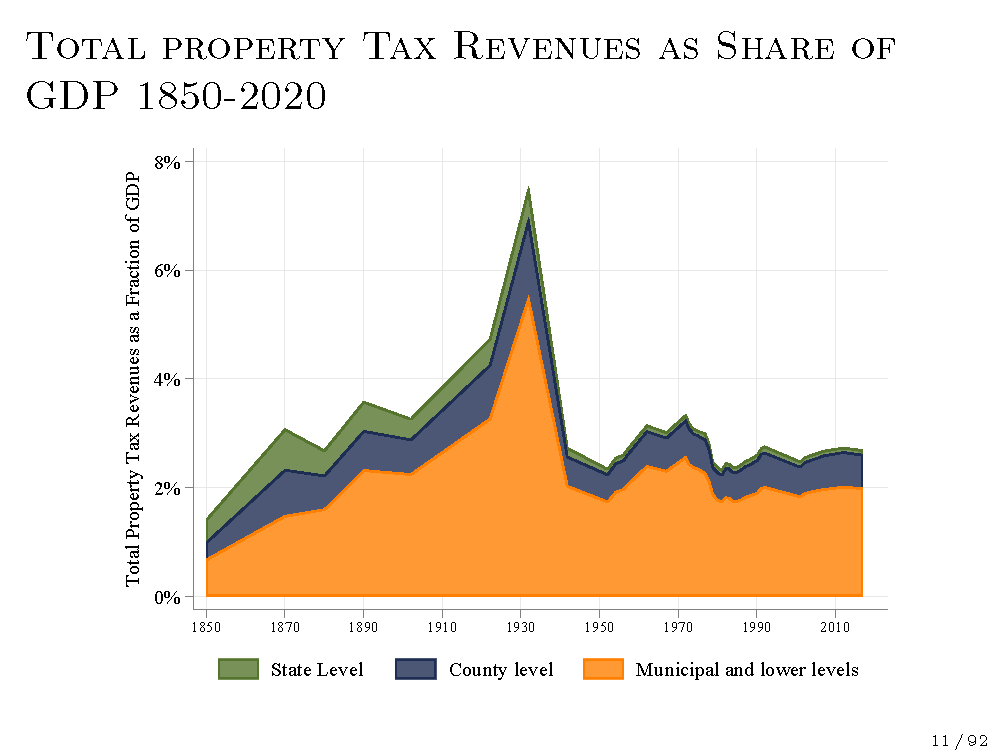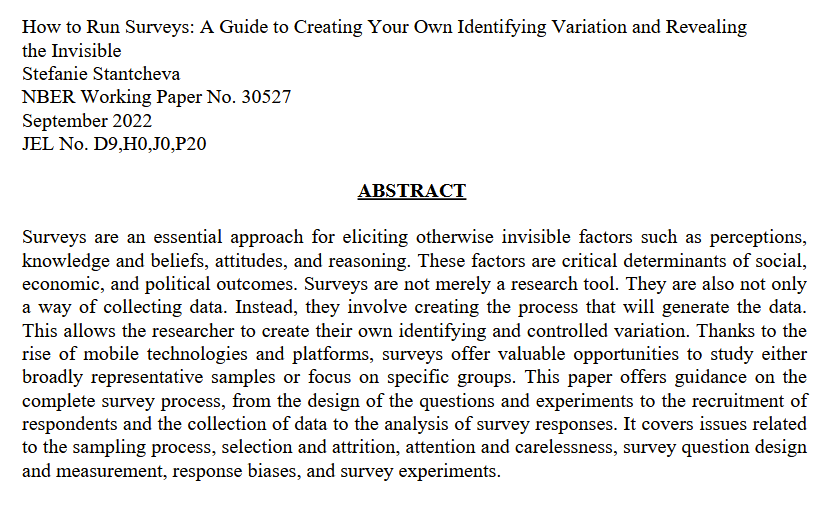Zero-sum thinking is a key mindset that shapes how we view the world. Excited to share a new paper on the roots and consequences of Zero-sum thinking with @sahilchinoy, @DrNathanNunn @SMGSequeira. A summary thread🧵1/23 scholar.harvard.edu/files/stantche…


What is zero-sum thinking? It’s the belief that gains for one individual or group tend to come at the cost of others. It’s the belief in a “limited good”: if you get a bigger slice of the pie, it means that I must get a smaller one. 2/23
We dive into the historical roots of zero-sum thinking and its impact on political views. Using a new large-scale survey of U.S. residents, we collect data on people’s stances on policy issues, measures of zero-sum thinking, and their detailed ancestry and family histories. 3/23
This approach allows a detailed look into the experiences of four generations that helps us understand the lasting effects of family history on viewpoints. 4/23
To measure how prevalent zero-sum thinking is in the U.S., we ask respondents if they believe gains for some come at others' expense in different relations: between countries, racial groups, immigrants vs non-immigrants, and income groups. 5/23 

Based on these questions from different domains, we construct a "zero-sum index" -- an indicator that captures a respondent’s general zero-sum worldview and the tendency to think in zero-sum terms regardless of the context. 6/23 

Which people tend to be more zero-sum? In general respondents who are in urban areas, younger, with lower income or lower educational achievements. Zero-sum thinking also varies by state: respondents in Utah are the least zero-sum; those in NY are among the most zero-sum. 7/23 

One puzzling fact: Why are younger generations in the US so much more zero-sum than older ones? It might be because older generations experienced much higher growth and better economic conditions when they were young, which could have reduced their zero-sum world views. 8/23 

By the way, this pattern also holds in 70 other countries: the economic growth experienced by an individual during their first 20 years of life is associated with a lower tendency to think in zero-sum terms. 9/23 

Those who see the world through a zero-sum lens often favor policies that redistribute income from the wealthier to the less wealthy ones and increase resources for disadvantaged groups. 10/23
People who are more zero-sum support more progressive policies, such as taxation & universal health insurance. They also back more affirmative action for women & African Americans, & more immigration restrictions. This holds not only in the US, but in 70 other countries too 11/23 

Important: zero-sum is *not* mainly a partisan issue. Democrats & Republicans are zero-sum in different domains eg. Dem. tend to believe the gains of the rich come at the expense of the poor; Rep. tend to believe the gains of immigrants come at the expense of non-immigrants 12/23 

Zero-sum thinking can help explain within party-variation in policy views. Eg: Why do some Republicans support government redistribution or universal healthcare? They're the more zero-sum ones. Why do some Democrats favor tighter immigration controls? They're more zero-sum.13/23 

Zero-sum thinking can also shed some light on why some Democrats – namely the most zero-sum ones -- voted for Trump in 2016. Trump’s rhetoric often was zero-sum, emphasizing situations in which groups were pitted against each other. 14/23 

We also trace the roots of zero-sum thinking in the US. Important historical factors, such as ancestral economic mobility, immigration, and enslavement, play a key role in shaping contemporary zero-sum perspectives. 15/23
Having experienced greater upward intergenerational economic mobility (at any generation) consistently correlates with reduced zero-sum thinking. This suggests that witnessing family progress might alter perceptions of societal gain dynamics. 16/23 

On immigration, we first consider its direct link with zero-sum thinking. Individuals with recent immigrant ancestors tend to exhibit less of a zero-sum outlook. This effect is strongest in first-generation immigrants, followed by second- and third generation immigrants 17/23 

But there might also be an indirect link: if a respondent’s grandparents or parents lived in a county with higher immigration inflows during the 1860-1920 Age of Mass Migration, they have a less zero-sum view today. 18/23
Finally, we examine the history of slavery. A notable fact is that Black respondents in the US exhibit more zero-sum thinking than other groups. Furthermore, among Black respondents, those who have ancestors who were enslaved have a more zero-sum worldview. 19/23 

Other forms of historical coercion of one’s ancestors, such as forced reservations, indentured servitude, and concentration camp imprisonments during the Holocaust, are linked to stronger zero-sum views today. 20/23
Respondents also tend to exhibit significantly more zero-sum thinking if they, their parents, or their grandparents grew up in a county with more enslavement historically. The place-based effects of enslavement appear to still be present today. 21/23 

There is also evidence for spillovers of slavery from Southern to non-Southern places. Respondents who were raised, or had ancestors, in counties with a higher share of white Southern migrants or with a stronger “Confederate culture” have a stronger zero-sum mindset. 22/23
Overall, zero-sum thinking plays an important role in how we view the world and seems to be linked to family history and historic events. And there are many more interesting causes and consequences to study related to zero-sum mindsets. 23/23
• • •
Missing some Tweet in this thread? You can try to
force a refresh

 Read on Twitter
Read on Twitter













